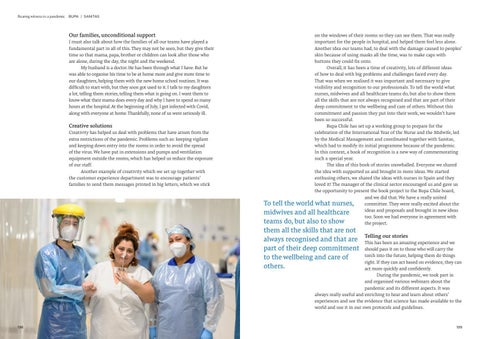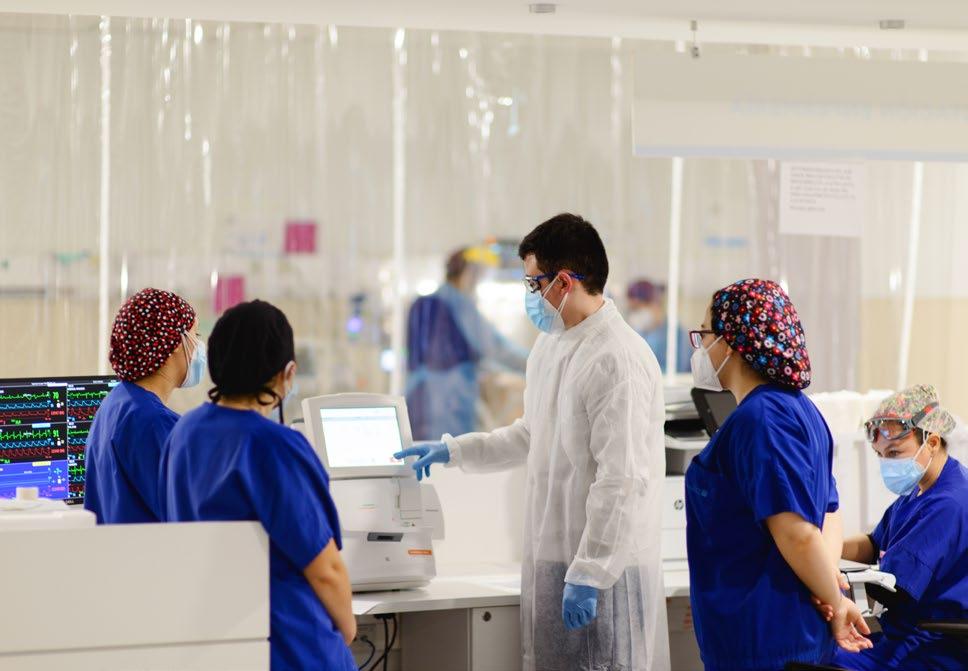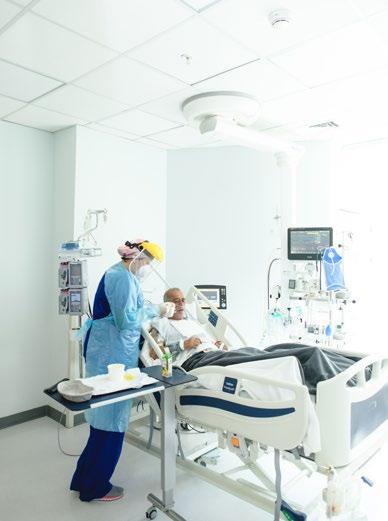Bearing witness to a pandemic BUPA | SANITAS
Our families, unconditional support
I must also talk about how the families of all our teams have played a fundamental part in all of this. They may not be seen, but they give their time so that mama, papa, brother or children can look after those who are alone, during the day, the night and the weekend. My husband is a doctor. He has been through what I have. But he was able to organise his time to be at home more and give more time to our daughters, helping them with the new home school routines. It was difficult to start with, but they soon got used to it. I talk to my daughters a lot, telling them stories, telling them what is going on. I want them to know what their mama does every day and why I have to spend so many hours at the hospital. At the beginning of July, I got infected with Covid, along with everyone at home. Thankfully, none of us were seriously ill.
Creative solutions
Creativity has helped us deal with problems that have arisen from the extra restrictions of the pandemic. Problems such as: keeping vigilant and keeping down entry into the rooms in order to avoid the spread of the virus. We have put in extensions and pumps and ventilation equipment outside the rooms, which has helped us reduce the exposure of our staff. Another example of creativity which we set up together with the customer experience department was to encourage patients’ families to send them messages printed in big letters, which we stick
on the windows of their rooms so they can see them. That was really important for the people in hospital, and helped them feel less alone. Another idea our teams had, to deal with the damage caused to peoples’ skin because of using masks all the time, was to make caps with buttons they could fix onto. Overall, it has been a time of creativity, lots of different ideas of how to deal with big problems and challenges faced every day. That was when we realised it was important and necessary to give visibility and recognition to our professionals. To tell the world what nurses, midwives and all healthcare teams do, but also to show them all the skills that are not always recognised and that are part of their deep commitment to the wellbeing and care of others. Without this commitment and passion they put into their work, we wouldn’t have been so successful. Bupa Chile has set up a working group to prepare for the celebration of the International Year of the Nurse and the Midwife, led by the Medical Management and coordinated together with Sanitas, which had to modify its initial programme because of the pandemic. In this context, a book of recognition is a new way of commemorating such a special year. The idea of this book of stories snowballed. Everyone we shared the idea with supported us and brought in more ideas. We started enthusing others, we shared the ideas with nurses in Spain and they loved it! The manager of the clinical sector encouraged us and gave us the opportunity to present the book project to the Bupa Chile board, and we did that. We have a really united To tell the world what nurses, committee. They were really excited about the ideas and proposals and brought in new ideas midwives and all healthcare too. Soon we had everyone in agreement with teams do, but also to show the project.
them all the skills that are not always recognised and that are part of their deep commitment to the wellbeing and care of others.
Telling our stories
This has been an amazing experience and we should pass it on to those who will carry the torch into the future, helping them do things right. If they can act based on evidence, they can act more quickly and confidently. During the pandemic, we took part in and organised various webinars about the pandemic and its different aspects. It was always really useful and enriching to hear and learn about others’ experiences and see the evidence that science has made available to the world and use it in our own protocols and guidelines.
198
199






















































